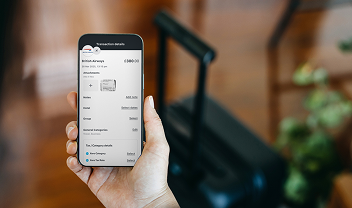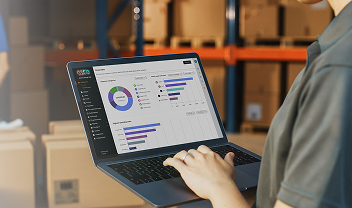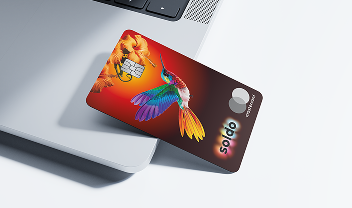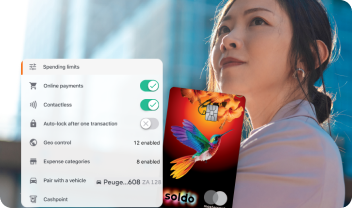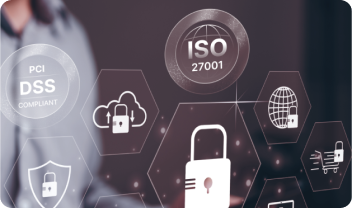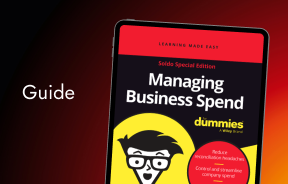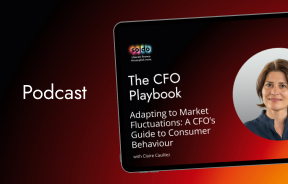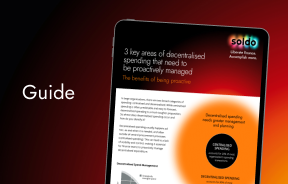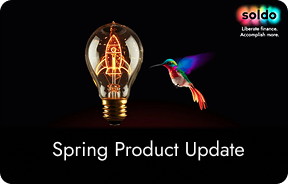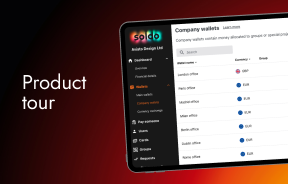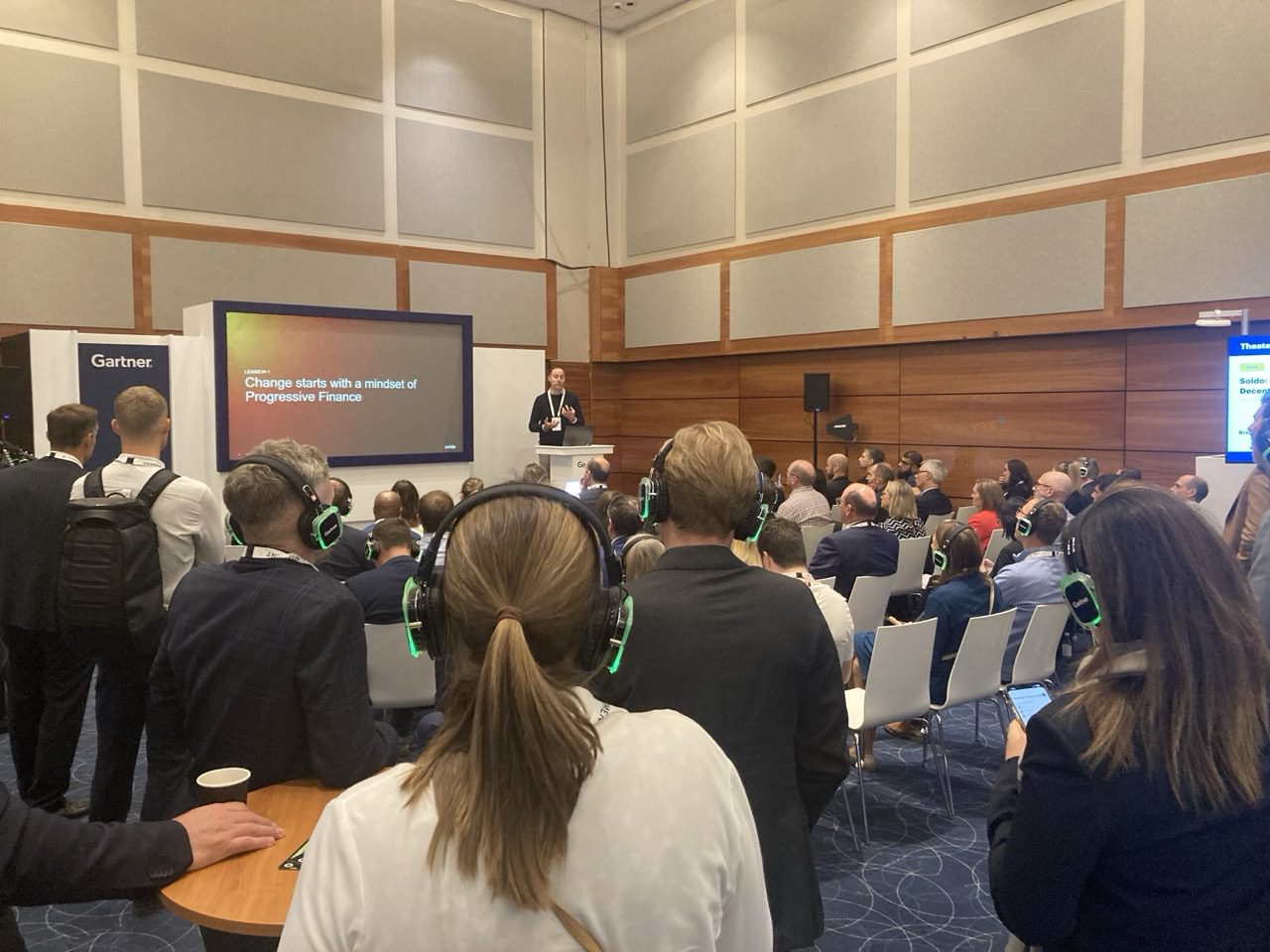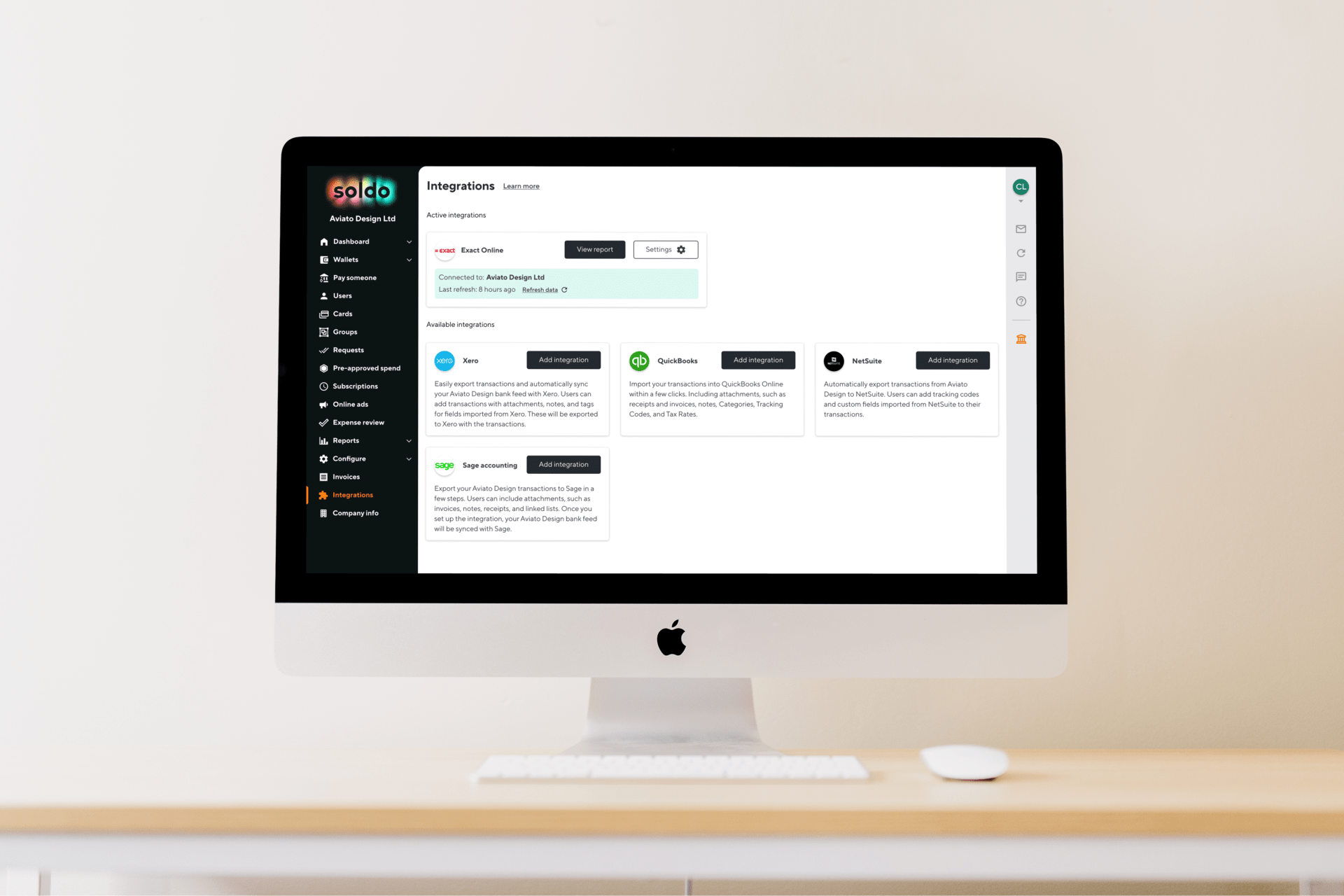This interview is part of prepaid cards for business provider Soldo’s Digital Disruptors series, which highlights the individuals changing the world with technology.
An interview with Lucy Cohen.
Lucy Cohen is the founder of Mazuma Accountants – and has just won the “Accounts and Tax Adviser of the Year” award at the British Small Business Awards 2018. She is a pioneer of digitally-enabled accounting and the author of “The Millennial Renaissance”, an enthusiastic dissection of the changing generations.
But some in the accounting industry aren’t entirely on board with a new generation’s thinking.
In a seminal article on AccountingWeb, “Why Practices must engage Millennials”, she wrote: “We’re a generation who like to be kept in the loop… We’ve grown up accustomed to communicating and receiving answers almost instantly. So if your firm wants to engage with us, we need you to have systems in place to keep us posted on things”, which elicited (among a host of online comments), prickly replies like this one: “Can you confirm you are the generation that are willing to pay for this level of services and do not expect to get this service for free? If you want this level of service you need to pay for it or be happy that your accountant does your accounts whilst not concentrating on answering emails to someone who is impatient and inconsiderate.” And that’s one of the more civil comments.
So what do Millennials actually want?
Millennials are not going to be impressed with a regimented nine-to-five. They will expect you to be flexible around hours and allow for time to be bought and sold across the working week. Nobody wants to go cap-in-hand for an extra hour to go to a doctor’s appointment…
Before we get into the details, why should an accountancy practice even think about Millennials?
Nobody particularly likes the term, least of all Millennials themselves, and that’s partly because it’s often used disparagingly to just mean young people in general. Yet the oldest Millennials today are in their mid-30s. A big proportion of an accountancy firm’s client base will fall into that category. By 2020, they will represent 35% of the global workforce; and by then another 24% of the workforce will be the follow-on ‘Generation Z’.
Not only are tomorrow’s entrepreneurs Millennials, so are the self-employed. And thanks to the emergence of the gig economy and the changing habits and needs of this generation, more are starting their own businesses, operating freelance or running side hustles than ever before. As an accountant, if you ignore Millennials, you’re cutting out 50% of your market.
But there’s another part to the story too. We live in a time of historically high employment, and lots of transparency around workplaces. You can see what it’s like to work somewhere on lots of sites like Glassdoor. So there is competition for top talent, and they will go somewhere else if a workplace doesn’t meet their cultural expectations. So it’s important to understand the Millennial mindset if you want to continue to recruit the best, too.
OK – the Millennials are a dominant economic force. What do they care about?
I think there are several characteristics here (which are also shared with Generation Z). Most importantly, the overall shift in the economy towards services rather than making things means that our currency of economic worth is often ideas, entertainment and education. All that can be done virtually, from anywhere and at any time of day or night. I work from home two days a week, and there are plenty of ‘digital nomads’ who even work from different cities every week. That freedom and flexibility matters to Millennials. So the traditional constraints of location and time are breaking down.
When catering to the new generation of entrepreneurs, that means you need to be highly reactive and responsive, occasionally outside working hours. Don’t be surprised to get emails at all hours of the day and night – and to be expected to respond if it’s a reasonably simple question.
You’ll need to be happy to use the many tools now available (messaging, video calling etc.) to communicate effectively without meeting face-to-face. This isn’t just about location: Millennials have an acute sense of optimisation – particularly at work, they look to optimise activities and processes for even the most marginal gain, and travelling for meetings is seen as a particularly wasteful activity. Instead, be prepared for 15-minute teleconferences with minimal contact (and sometimes what older people perceived as a minimal courtesy, too!)
The same mindset shift plays out in terms of attracting talent, too. Millennials are not going to be impressed with a regimented nine-to-five. You don’t necessarily have to offer full flexitime, but they will expect you to be flexible around hours and allow for time to be bought and sold across the working week. Nobody wants to go cap-in-hand for an extra hour to go to a doctor’s appointment, for example. This is all best handled by giving employees a set of core tasks which must be covered, and then plenty of freedom beyond those defined core activities.
I can imagine the more traditional practices balking at this…
But they can benefit, too. Nobody minds answering emails in the evening or responding to social media outside office hours; so there’s ample room for smart practices to leverage their flexible staff to do more activities across a longer workday. And roles are more flexible too: there are many more components to a job role than there used to be: we all take responsibility for a bit of marketing or a bit of sales. Clients expect more, and Millennial flexibility allows us to give them more.
Be flexible, set boundaries, and make sure you’re communicating to your staff clearly what their role is. We recently took on a business development manager, and we gave him clear targets as to what we want him to achieve, we set the parameters of the job, and the rest is up to him. We don’t worry about where he is or what times he keeps, so long as he delivers. And it works for him: because he has ownership, autonomy and flexibility.
In accountancy, there’s often an embedded way of working, and the world has often changed faster than the industry has. So we need to go with the flow of our clients and employees. You might think that time-keeping is an operational issue, but actually, the phone never rings at 9am. It turns out that the obsession with a nine-to-five is just cultural; and in sticking to it, we would be missing an opportunity to be more competitive and capable.
The problem is, the bigger (or even just more established) you are, the more embedded your processes and the harder it is to change. This is completely natural – we all fall into our comfort zone. But it’s dangerous in our fast-changing world. So the key is to allow change to happen and move with the flow. Don’t get stuck with systems, processes or technologies that are a ten-year burden: you’ll suddenly find that they’re outdated. You must future-proof yourself and your practice with systems that are agile, flexible, and open to shifting demand.
What else motivates this new generation?
The next essential in dealing with Millennials is that if they believe in what they do, they will be motivated to outperform (and similarly, if they don’t, they will soon go and do something else). We are the most civic-minded, socially-minded, team-oriented generation. We want to feel part of something and have a purpose.
I’ve been watching with interest some of today’s up-and-coming companies in my own sector; for example the trend in modern banking for mobile-first banks like Revolut, Monzo, and N26. For the people who work there, their mission is almost part of their identity. They’re proud to be part of the journey.
Millennial entrepreneurs and their employees do what they do because they are committed to it. They get jobs for their friends so that they can share their excitement and the benefits of any successes. They hang out together too – on a Friday, many companies will have, for example, a movie night and pizza; because it’s cheaper than going out for drinks and, in any case, your friends are already there.
Again, as you can imagine, this is another example of the blurring of work and home life. Millennials are ‘in the office’ (wherever the office is today…) well beyond office hours. Equally, they may often not even think of what they do as work – because they approach their work and pleasure activities in the same way: stimulating and motivating ways to spend one’s time.
Again, it means that practices must be as committed as their entrepreneur clients. They will expect you to be responsive – partly because they expect you to buy into their projects.
The same is true for talent. If you want to employ Millennials, give them work they can believe in. They are used to disruption by default – questioning the status quo rather than continuing to use what they perceive as outdated practices. Just as the idea of staying at home to wait for someone to come round to check the gas meter is an anachronism when it can be reported online, or automated entirely with a smart meter, they will look for shortcuts and improvements to simplify onerous tasks.
Harness that curiosity, and you will create a leaner practice with a motivated workforce. Fail to harness it, and they will see your business as both prehistoric and boring. Similarly, new entrants to the business may try to employ shortcuts that are dangerous or ineffective because they don’t understand the nuances of the work: here, it’s the job of more experienced practitioners to guide and nurture new arrivals to be professional.
And what about technology in this new world?
I think this is where things get really interesting, because this younger generation is tech-savvy enough to know that technology is not the answer to everything. As we’ve seen, Millennial entrepreneurs will instinctively deploy technology to make every process faster, better and smoother – it’s what I’ve done in my own processes to run a lean accountancy practice.
So, in nine out of ten cases, they will want to resolve issues themselves; finding information, submitting data and letting automated systems do the heavy lifting wherever possible.
But in the tenth case – where things are complex and human advice is needed, they will really appreciate human guidance that comes from a place of experience and knowledge. In business of course, an accountant is the ideal person to build that relationship with, and to call on. We’re not a face-to-face practice: as we’ve discussed already, our clients are very comfortable not having face-to-face meetings. They want answers fast, not next week when I have room for a meeting in my diary. But we’ve built in procedures with clients to make sure they can get in touch in the most appropriate way, whenever they need us.
They’ve got lots of knowledge already – a quick Google will tell them the basic things about their query, and they’ll come to us well informed. We can then confirm what they thought, or explain why it’s not the case and give them really valuable guidance.
A friend of mine is a doctor and she told me that people today come to her practice much more informed than would have been the case a decade ago. Equally they will often be convinced that they’re on the brink of death. You really shouldn’t diagnose yourself online because it will lead you down the wrong path, but a bit of basic awareness does cut down the explaining that has to be done, so it’s both a blessing and a curse.
We see it as a blessing, because we can take moderately informed clients and then fill in the gaps, which really hammers home the value of a professional advisor.
So technology does the heavy lifting: the data wrangling, the shortening of previously manual processes etc.; which is what both the Millennial entrepreneur and our younger employees want. And it leaves both sides free to use their time together to apply high-value advice to the business.
The problem is, the bigger (or even just more established) you are, the more embedded your processes and the harder it is to change. This is completely natural – we all fall into our comfort zone. But it’s dangerous in our fast-changing world. So the key is to allow change to happen and move with the flow. Don’t get stuck with systems, processes or technologies that are a ten-year burden: you’ll suddenly find that they’re outdated.
What will these changes mean for accountancy practices?
Most practices will have to make some decisions. Do I want to use technology internally to make my life easier by applying it to traditional problems? And do I want to educate or attract clients interested in working in these new ways that I want to work? You can easily segregate your client base or marketing effort to attract the right clients – so that you always deliver on their expectations.
One size doesn’t fit all, so practices must work out their markets. We’re at a crossroads – the halfway mark between old and new approaches. There is still plenty of room for traditional practices, but the direction of travel is clear, and the pace of change is not going to slow down. I’m conversant with technology today, but even I wonder whether I’m going to remain an early adopter, or whether in 20 years we could be having this conversation and I’ll be rejecting a worldview which includes eye implants and artificial intelligence because I’d rather carry on using my iPhone!
It’s definitely a state of mind: don’t do things just because it’s how things have always been done. Question everything and look to align with the needs of emerging generations. It can be a challenge for more traditional businesses, but it’s hugely exciting and a great opportunity, too.


